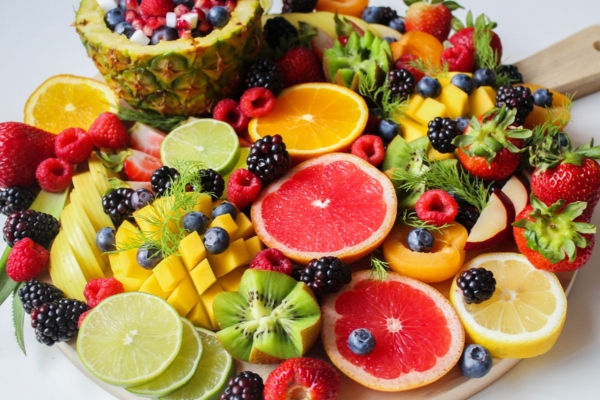What You Need to Know About Partnering with a Fresh Fruit Distributor
- bjnsri
- Apr 7
- 3 min read

In today's fast-paced food industry, ensuring a steady supply of high-quality fresh fruit is essential for businesses such as grocery stores, restaurants, and food processors. Partnering with a reliable distributor can make a significant difference in maintaining product consistency, minimizing waste, and maximizing profits. This guide will cover everything you need to know about selecting, working with, and optimizing a partnership with a distributor.
Why Partnering with a Fresh Fruit Distributor is Essential
A reliable distributor serves as the link between farmers and businesses that rely on fresh produce. Their role includes sourcing, storing, and delivering fruits in optimal condition while maintaining regulatory standards. A trusted distributor ensures businesses have access to seasonal and year-round fruits, reducing supply chain disruptions.
Benefits of Working with a Fresh Fruit Distributor
· Consistency and Reliability – Ensures a steady supply of fresh fruits.
· Quality Assurance – Distributors often conduct quality control checks.
· Cost-Effectiveness – Buying in bulk from distributors can reduce costs.
· Compliance with Food Safety Regulations – Reliable distributors follow food safety guidelines.
· Access to a Variety of Fruits – Ensures a wide selection of fresh produce, including exotic fruits.
Key Factors to Consider When Choosing a Fresh Fruit Distributor
1. Product Quality and Freshness
Quality is a top priority when choosing a distributor. Consider how the distributor sources their fruits and their handling and storage procedures. Ask about their quality control process and how they ensure that only the freshest produce reaches their clients.
2. Sourcing and Sustainability Practices
If sustainability is important to your business, choose a distributor that partners with eco-friendly farms and follows responsible agricultural practices. Some distributors specialize in organic produce, fair trade fruits, and locally sourced items.
3. Delivery and Logistics Efficiency
Timely deliveries are crucial in the food industry. Ensure the distributor has a well-established supply chain network, refrigerated transportation, and an efficient delivery schedule that aligns with your business needs.
4. Food Safety and Certifications
Verify that the distributor complies with food safety regulations, such as Hazard Analysis and Critical Control Points (HACCP) and Good Agricultural Practices (GAP). Certifications ensure that the distributor adheres to health and safety standards.
5. Pricing and Cost Transparency
Compare pricing structures between distributors and check for hidden costs such as delivery fees, storage fees, or seasonal price fluctuations. Partner with a distributor who provides clear and competitive pricing.
6. Reputation and Customer Reviews
Research the distributor’s reputation by checking reviews, testimonials, and industry ratings. A good track record indicates reliability and customer satisfaction.
7. Customer Service and Communication
A responsive distributor who is open to communication can help resolve any supply issues quickly. A dedicated customer support team ensures smooth transactions and problem resolution.
How to Build a Strong Relationship with Your Fresh Fruit Distributor
1. Communicate Your Needs Clearly
Establish expectations regarding product specifications, delivery schedules, and order quantities. Providing detailed requirements helps avoid miscommunication.
2. Foster Long-Term Collaboration
Building a long-term relationship with a distributor can lead to better pricing, priority service, and improved product availability. Strong partnerships foster trust and reliability.
3. Monitor Inventory and Demand Trends
Stay updated on demand trends to place timely orders and avoid overstocking or understocking. Work with your distributor to forecast seasonal fluctuations and special promotions.
4. Provide Feedback for Continuous Improvement
Share feedback on product quality, delivery efficiency, and service responsiveness. A good distributor values client feedback and strives for continuous improvement.
5. Be Flexible and Adapt to Market Changes
Markets fluctuate, and occasional supply chain disruptions can occur. Maintain a flexible approach and work with your distributor to find alternative solutions when necessary.
Common Challenges in Partnering with a Fresh Fruit Distributor and How to Overcome Them
1. Seasonal Availability Issues
Some fruits are only available during certain seasons, leading to supply shortages. Solution: Work with your distributor to plan in advance and explore alternative fruit options.
2. Price Volatility
Fruit prices may fluctuate due to weather conditions, transportation costs, and global demand. Solution: Lock in contracts with fixed pricing or negotiate bulk purchase discounts.
3. Logistics and Delivery Delays
Unexpected delays can impact business operations. Solution: Choose a distributor with a strong logistics network and have backup suppliers when needed.
4. Quality Inconsistencies
Not all shipments maintain the same quality. Solution: Set quality control standards with your distributor and request regular inspections.
Conclusion
Partnering with the right distributor can make a significant impact on your business. By prioritizing product quality, supply reliability, pricing transparency, and strong communication, businesses can build successful long-term relationships with distributors. Evaluating potential distributors based on the outlined factors will ensure a steady supply of fresh, high-quality produce, ultimately benefiting both the business and its customers.
By fostering collaboration, staying informed, and adapting to market changes, you can maximize the benefits of your partnership with a fresh fruit distributor and ensure a consistent supply of quality fruits for your customers.



Comments